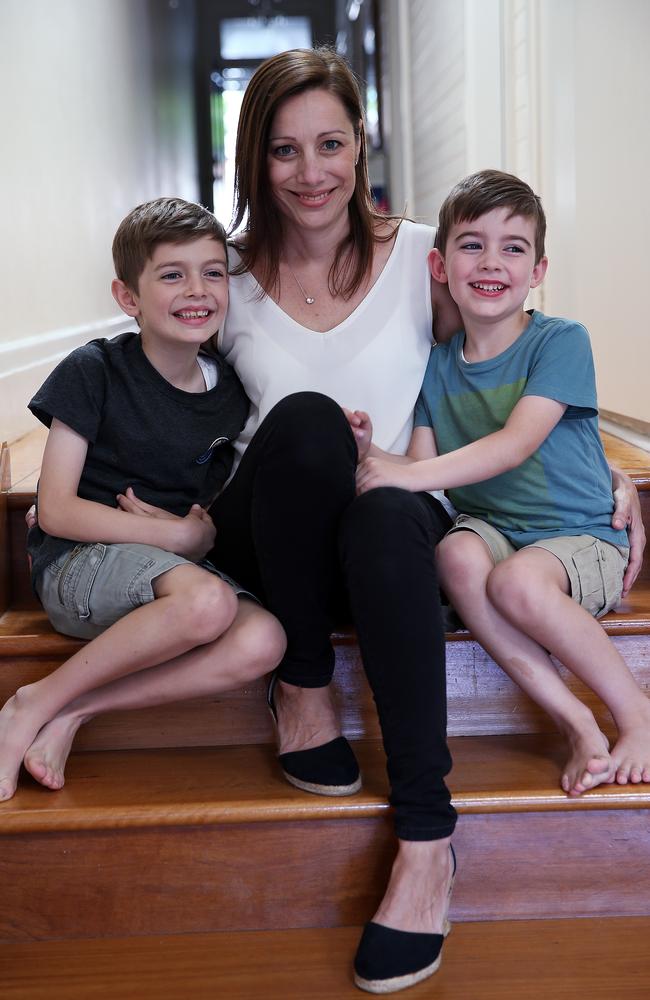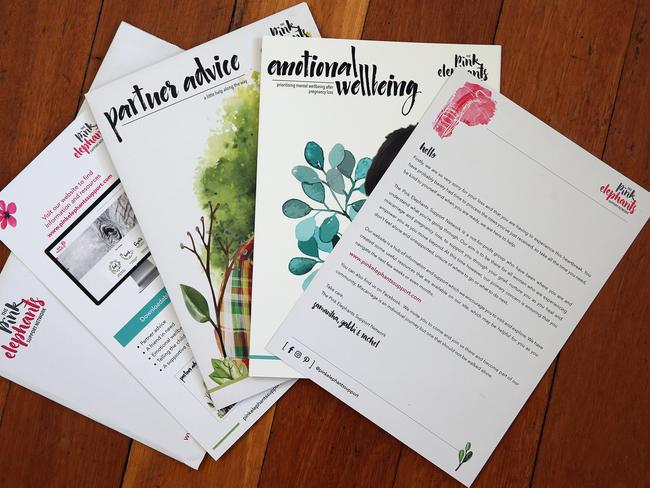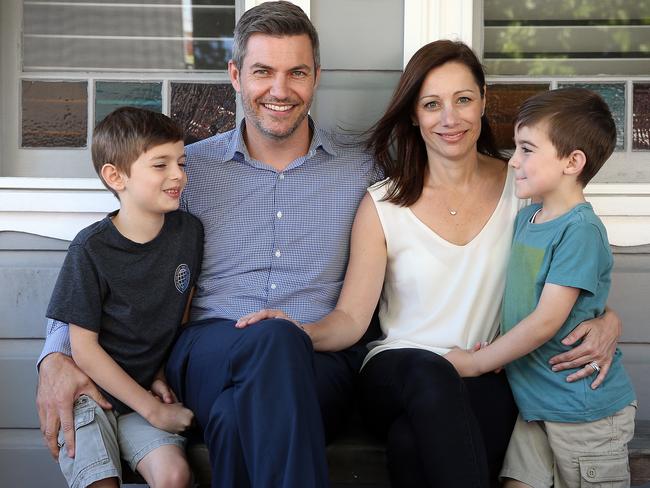Miscarriage on the rise but there’s still not enough help for grieving mothers
ON average, one in five confirmed pregnancies are thought to end in miscarriage. According to fertility expert Dr Gavin Sacks from IVF Australia, miscarriage rates are on the rise.
NSW
Don't miss out on the headlines from NSW. Followed categories will be added to My News.
- Model Nikki Phillips opens up on her miscarriages
- Victor Chang researcher suffered miscarriage days before ceremony
GABBI Armstrong will never forget going for her baby’s 10-week ultrasound and being told “I’m sorry, there is no heartbeat”.
The Botany mum has two children now but endured six miscarriages over a two-year period. On average, one in five confirmed pregnancies are thought to end in miscarriage.
Mrs Armstrong felt there were no resources to help grieving women, so she teamed up with another mum, Samantha Payne, who had also had two miscarriages, to form the Pink Elephants Support Network.

The online network aims to help women negotiate the complex emotions that come from an empty womb and a broken heart.
“You still feel pregnant, but there is no baby, there are a lot of tears and you have to know it is OK to feel devastated, it’s OK to be jealous of other pregnant women and it’s OK to feel angry and lose confidence,” she said.
The Royal Hospital for Women now offers a miscarriage care kit designed and supplied by Pink Elephants in their early pregnancy unit and they have also started information seminars for midwives and emergency department staff on how to emotionally support women through miscarriage.
“We want to help professionals to better support women going through this,” Mrs Armstrong said.
MORE: RADIO HOST OPENS UP ON THE PAIN OF RECENT MISCARRIAGE

Mrs Armstrong had already travelled an emotional rollercoaster with eight rounds of IVF, 19 embryos transferred — and each ending with no pregnancy.
At age 35, Mrs Armstrong did fall pregnant naturally with son Hugh. When he was just seven months old, she fell pregnant again — and the nightmare of miscarriage began.
“There was no heartbeat, I was floored, beyond devastated,” the now 45-year-old said.
“Miscarriage really gets swept under the carpet, it’s so early, people say it’s not really a baby, it’s common, but it’s all your hopes and dreams.”
According to fertility expert Dr Gavin Sacks from IVF Australia, miscarriage rates are on the rise as women delay childbirth.

“From your mid-30s onwards, miscarriage rates become more frequent from about one in six in your early 30s to one in four at 40 and one in two at 45,” Dr Sacks said.
He said many women feel they suffer without acknowledgment.
“There’s a lot to be gained by recognising miscarriage,” he said.
Dr Sacks said there was hope for women who suffered multiple miscarriages.
“Women need to remember it is common and secondly, that it is often nature taking its course as a result of genetic abnormality but, thirdly, the chances of having a successful pregnancy the next time round are quite high, even if you have had three miscarriages, research shows you have a much higher change of success next time around,” he said.
